T-39 Days (October 26, 2015) - Technicians At The International Space Station Processing Facility At

T-39 days (October 26, 2015) - Technicians at the International Space Station Processing Facility at Kennedy Space Center integrated the Cygnus spacecraft’s Pressurized Module with its Service Module late last week. The spacecraft spent last week being loaded with over 7,700 pounds of supplies for the orbiting laboratory. The PM arrived in mid-August while the SM arrived in early October. OA-4 is the first flight of a Cygnus spacecraft since October 2014′s launch failure of Orb-3. The Antares rocket is being redesigned, with its reflight slated to occur in spring, 2016. Until then, two Commercial Resupply Missions are scheduled to fly on United Launch Alliance Atlas V 401 rockets, OA-4 and OA-5. Launch of OA-4 is currently scheduled for 6:03 pm EST on Thursday, December 3.
More Posts from Inter-stellxr-blog and Others
You're walking in the woods. No one is around and your phone is dead. Out of the corner of your eye you spot her.
Poot Lovato






Check out these 10 cool facts about Venus here: http://astronomyisawesome.com/solar-systems/cool-facts-about-venus/






The Martian Movie and Our Real Journey to Mars
The Martian movie is set 20 years in the future, but here at NASA we are already developing many of the technologies that appear in the film. The movie takes the work we’re doing and extends it into fiction set in the 2030s, when NASA astronauts are regularly traveling to Mars and living on the surface. Here are a few ways The Martian movie compares to what we’re really doing on our journey to Mars:
Analog Missions

MOVIE: In the film, Astronaut Mark Watney is stranded on the Red Planet.
REALITY: In preparation for sending humans to Mars, we have completed one of the most extensive isolation missions in Hawaii, known as HI-SEAS. The goal of this study was to see how isolation and the lack of privacy in a small group affects social aspects of would-be explorers. The most recent simulation was eight months long, and the next mission is planned to last a year.
Spaceport

MOVIE: The Martian movie launches astronauts on the Aries missions from a refurbished and state of the art space center.
REALITY: Currently, the Ground Systems Development and Operations’ primary objective is to prepare the center to process and launch the next-generation vehicles and spacecraft designed to achieve our goals for space exploration. We are not only working to develop new systems, but also refurbishing and upgrading infrastructure to meet future demands.
Deep Space Propulsion

MOVIE: In the film, the astronauts depart the Red Planet using a propulsion system know as the Mars Ascent Vehicle (MAV).
REALITY: We are currently developing the most powerful rocket we’ve ever built, our Space Launch System (SLS). Once complete, this system will enable astronauts to travel deeper into the solar system than ever before! The RS-25 engines that will be used on the SLS, were previously utilized as the main engine on our space shuttles. These engines have proven their reliability and are currently being refurbished with updated and improved technology for our journey to Mars.
Mission Control

MOVIE: In the movie, Mission Control operations support the Aries 3 crew.
REALITY: On our real journey to Mars, Mission Control in Houston will support our Orion spacecraft and the crew onboard as they travel into deep space.
Habitat

MOVIE: The artificial living habitat on Mars in The Martian movie is constructed of industrial canvas and contains an array of life support systems.
REALITY: The Human Exploration Research Analog (HERA), formerly known as the Deep Space Habitat, is a three-story module that was designed and created through a series of university competitions. Studies conducted in habitat mockups will allow us to evolve this technology to create a reliable structures for use on Mars.
Rover

MOVIE: The characters in the film are able to cruise around the Red Planet inside the Mars Decent Vehicle (MDV).
REALITY: We are currently developing a next generation vehicle for space exploration. Our Mars Exploration Vehicle (MEV) is designed to be flexible depending on the destination. It will have a pressurized cabin, ability to house two astronauts for up to 14 days and will be about the size of a pickup truck.
Harvest

MOVIE: Astronaut Mark Watney grows potatoes on Mars in The Martian movie.
REALITY: We’re already growing and harvesting lettuce on the International Space Station in preparation for deep space exploration. Growing fresh food in space will provide future pioneers with a sustainable food supplement, and could also be used for recreational gardening during deep space missions.
Spacesuit

MOVIE: The spacesuit worn by astronauts in the film allows them to work and function on the surface of Mars, while protecting them from the harsh environment.
REALITY: Prototypes of our Z-2 Exploration Suit are helping to develop the technologies astronauts will use to live and work on the the Martian surface. Technology advances in this next generation spacesuit would shorten preparation time, improve safety and boost astronaut capabilities during spacewalks and surface activities.

Alternate Concept: Minimized Fairing and Stage 2 Recovery






Mostly Mute Monday: The Glory of Saturn’s Rings
“Saturn is remarkable in a number of ways; among all the planets we know of, it’s the least dense, and also the only one with a spectacularly visible set of rings. Composed of icy, dust-like material, these rings are not solid at all, but made up of particles that pass each other, stick together briefly and then fly apart once again.
Snowballs and planetesimals coalesce, only to be torn apart by tidal forces exerted by Saturn and its passing moons. Gaps in the inner rings are caused by the gravitational presence of moons themselves, while many of the outer rings — like Saturn’s E-ring, below — are actually caused by the moons themselves.”
From their discovery in the 1600s, Saturn’s rings have been a source of wonder and puzzlement to skywatchers everywhere. The only ring system visible through most telescopes from Earth, Saturn’s main rings at more than 70,000 km long, yet no more than 1 km in thickness. Once thought to have only two gaps in them, the Cassini spacecraft has revealed over a thousand, teaching us that Saturn’s rings are likely as old as the planet itself, and will likely continue to exist for as long as our Sun shines.
This is me
i dab every morning when i wake up
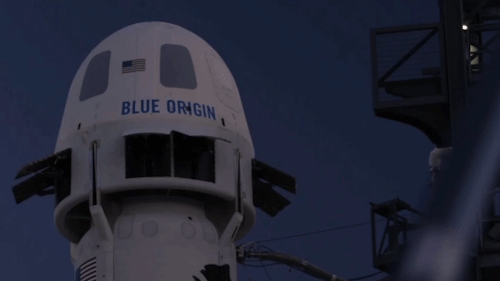
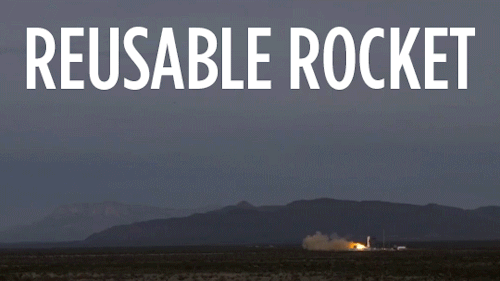

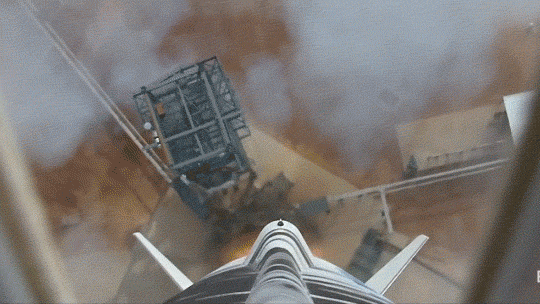
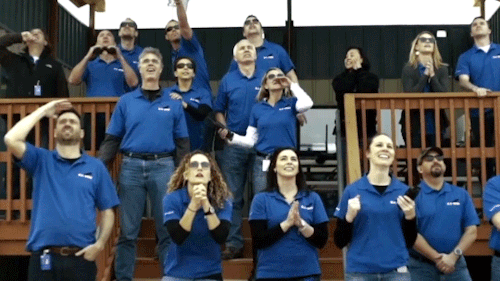
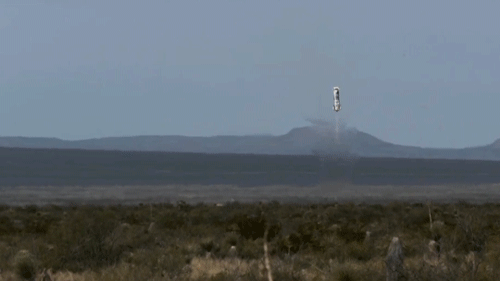

Via his very first tweet, Jeff Bezos announced that his spaceflight company has accomplished a historic first. It sent a rocket to the edge of space and then landed that rocket’s main fuselage gently on dry land.
Most things humans have sent into space are pushed up there by a disposable rocket. Once the rockets do their job, they fall back to earth, usually worse for wear. They have to be rebuilt each time (though sometimes their parts can be reused). That’s an expensive process, especially if you are a private company hoping to bring tourists to space. Virgin Atlantic, Elon Musk’s company SpaceX and Bezos’ Blue Origin all want to do just that.
And now Blue Origin has paved the way, landing its rocket on its second attempt (the propulsion module was destroyed when they first tried). Here’s the video in full:
Elon Musk responded to the news on Twitter. He pointed out that it requires much greater speed to actually reach orbit than it does to reach the edge of space. (Phil Plait has some good analysis of the exchange over on his Bad Astronomy blog.)
Still, it’s a pretty amazing accomplishment.
@rasinblazin
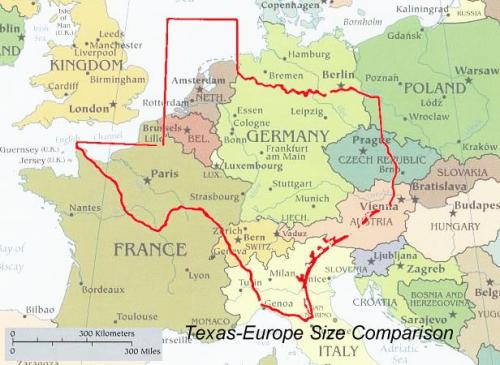
this changes everything oh my god
do you understand why it trips me out that people can drive 45 minutes and be in aNOTHER COUNTRY? I drive for 45 minutes and im like
a city over
I live in “Italy” and took a day trip to go to “Austria” and “Germany”
#it is literally impossible to leave texas #you will be in texas #FOREVER
Chums, that’s sweet, and all, but Australia just ate Texas for breakfast.

If you drive for 45 minutes in Australia you aren’t a city over, you’re just 45 minutes away from the city.
If you drive for 45 minutes in Australia you may not even leave the cattle station.

If you drive for 45 minutes in Canada you may not even leave your driveway.
If I drive 45 minutes in the us I’m just at another mcdonalds
If I drive for 45 minutes in Northern Ireland I’m 10 minutes into the sea.
I can’t drive.
I will use this post to explain tumblr
-
 thisfutureastronaut liked this · 9 years ago
thisfutureastronaut liked this · 9 years ago -
 starhasarrived reblogged this · 9 years ago
starhasarrived reblogged this · 9 years ago -
 starhasarrived liked this · 9 years ago
starhasarrived liked this · 9 years ago -
 water-whopper reblogged this · 9 years ago
water-whopper reblogged this · 9 years ago -
 180skills-blog reblogged this · 9 years ago
180skills-blog reblogged this · 9 years ago -
 vatnik-ivan liked this · 9 years ago
vatnik-ivan liked this · 9 years ago -
 inter-stellxr-blog reblogged this · 9 years ago
inter-stellxr-blog reblogged this · 9 years ago -
 blackcoffeehigh liked this · 9 years ago
blackcoffeehigh liked this · 9 years ago -
 shinigami-sustituto liked this · 9 years ago
shinigami-sustituto liked this · 9 years ago -
 aerospaceengineering reblogged this · 9 years ago
aerospaceengineering reblogged this · 9 years ago -
 mytheoryx reblogged this · 9 years ago
mytheoryx reblogged this · 9 years ago -
 eggstronomy liked this · 9 years ago
eggstronomy liked this · 9 years ago -
 jdr1966 liked this · 9 years ago
jdr1966 liked this · 9 years ago -
 herkidalpaca reblogged this · 9 years ago
herkidalpaca reblogged this · 9 years ago -
 dubynas reblogged this · 9 years ago
dubynas reblogged this · 9 years ago -
 spacetimewithstuartgary reblogged this · 9 years ago
spacetimewithstuartgary reblogged this · 9 years ago -
 addictwithapanicofnovocaine reblogged this · 9 years ago
addictwithapanicofnovocaine reblogged this · 9 years ago -
 black-moon-fox reblogged this · 9 years ago
black-moon-fox reblogged this · 9 years ago -
 herkidalpaca liked this · 9 years ago
herkidalpaca liked this · 9 years ago -
 sunmothh liked this · 9 years ago
sunmothh liked this · 9 years ago -
 wompwomp690 reblogged this · 9 years ago
wompwomp690 reblogged this · 9 years ago -
 spacelovemagic reblogged this · 9 years ago
spacelovemagic reblogged this · 9 years ago -
 astronomyandastrophotography reblogged this · 9 years ago
astronomyandastrophotography reblogged this · 9 years ago -
 patrick42h reblogged this · 9 years ago
patrick42h reblogged this · 9 years ago -
 sunfogo liked this · 9 years ago
sunfogo liked this · 9 years ago -
 letsbigbouquetturtle-blog liked this · 9 years ago
letsbigbouquetturtle-blog liked this · 9 years ago -
 maddeningscientist liked this · 9 years ago
maddeningscientist liked this · 9 years ago -
 okan170 reblogged this · 9 years ago
okan170 reblogged this · 9 years ago -
 01001111o liked this · 9 years ago
01001111o liked this · 9 years ago -
 for-all-mankind reblogged this · 9 years ago
for-all-mankind reblogged this · 9 years ago
"I don't know who will read this. I guess someone will find it eventually. Maybe in a hundred years or so." -Mark Watney
174 posts
